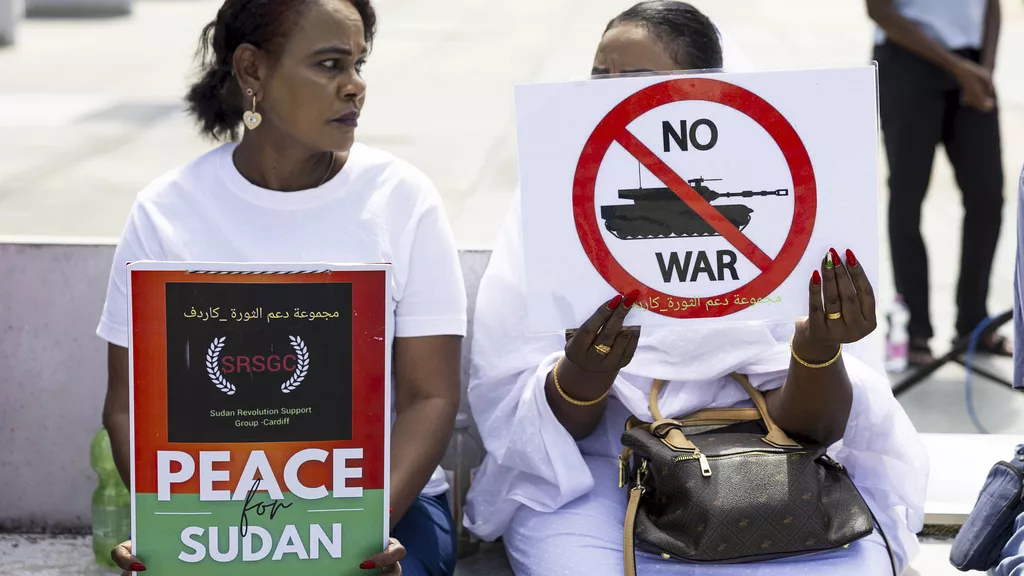Africa
Sudanese Army Absent as First Day of Switzerland Peace Talks Conclude

The first day of peace talks in Switzerland concludes without the participation of the Sudanese army, raising concerns about the future of negotiations aimed at resolving the ongoing conflict in Sudan.
On Wednesday, the inaugural day of U.S.-led peace discussions to resolve Sudan’s violent conflict ended in Geneva. The military representatives from one side were absent while it was uncertain if their opponents participated.
As the country devastated by war confronts an extremely dire humanitarian situation, negotiations are in progress. Despite this, no representatives from the nation’s military were present and it seems unlikely that members of the opposing Rapid Support Forces participated in Wednesday’s meeting.
Representatives from Saudi Arabia, Egypt, The United Arab Emirates, the African Union and the United Nations participated in the negotiations.
In April of last year, the country in Northeast Africa fell into disarray as conflicts between the military and RSF erupted into open battle within Khartoum. These tensions then spread throughout the entire nation.
“Switzerland is witnessing our joint efforts on the very first day of intense diplomacy for Sudan, aimed at facilitating humanitarian access and putting an end to hostilities,” expressed a collective statement issued by representatives from the United States, Switzerland, Egypt, Kingdom of Saudi Arabia (KSA), African Union (AU), United Nations (UN) and United Arab Emirates.
Tom Perriello, the U.S. Special Envoy for Sudan shared a statement on X and uploaded pictures of that day’s discussions; however, none of them featured any representatives from RSF in Switzerland. The paramilitary group confirmed on Tuesday that their delegation had indeed reached there despite not being captured in photographs.
The RSF spokesperson refused to provide any comment regarding Wednesday’s meeting or the attendance of their delegation.
The Rapid Support Forces originated from Janjaweed militants established by former Sudanese leader Omar al-Bashir, who governed the nation for thirty years before being ousted in a popular revolt in 2019. Al-Bashir has been indicted by the International Criminal Court on allegations of genocide and other atrocities committed during Darfur’s turmoil in the early 2000s.
At the same time, authorities persisted in urging that the nation’s armed forces take part in the talks.
Farhan Haq, the deputy spokesman of United Nations, informed journalists that it is imperative for all parties to be a part of the negotiations in order to achieve maximum success.
On Tuesday, Gen. Abdel-Fattah Burhan, the leader of Sudan’s military announced that they would not engage in cease-fire discussions until RSF ceased seizing civilian homes. He holds RSF accountable for dishonestly claiming peace while simultaneously carrying out belligerent actions.
During an army graduation ceremony in the eastern part of Burhan’s country, five people were killed in a drone attack. However, Burhan survived it but RSF did not acknowledge its involvement.
During a speech on Tuesday to commemorate the establishment of national military, Burham stated that our homes, cities and villages cannot find peace as long as rogue militaries are in control. He emphasized that hostilities will only cease when all militias have withdrawn from the areas they have pillaged and colonized.
The clashes have resulted in the deaths of numerous individuals and induced severe famine. The heinous acts committed during this period involve large-scale sexual assault, as well as racially motivated slayings which qualify as both war crimes and offenses against humanity according to global organizations like the U.N.
According to the International Organization for Migration, over 10.7 million individuals have been compelled to leave their residences as a result of Sudan’s conflict, making it the most extensive displacement emergency in the world. Of these refugees, more than 2 million migrated to nearby nations.
In the previous month, famine was confirmed by global specialists at a significant camp for displaced individuals in Darfur. The Famine Review Committee cautioned that over 25.6 million people, which is more than half of Sudan’s populace will encounter severe hunger owing to this situation.
